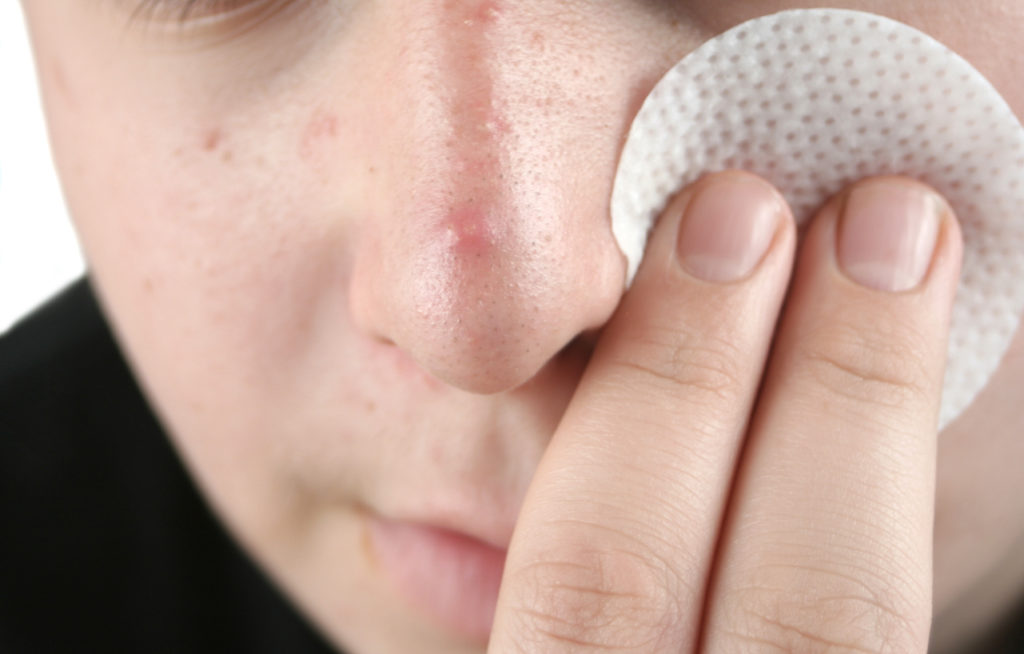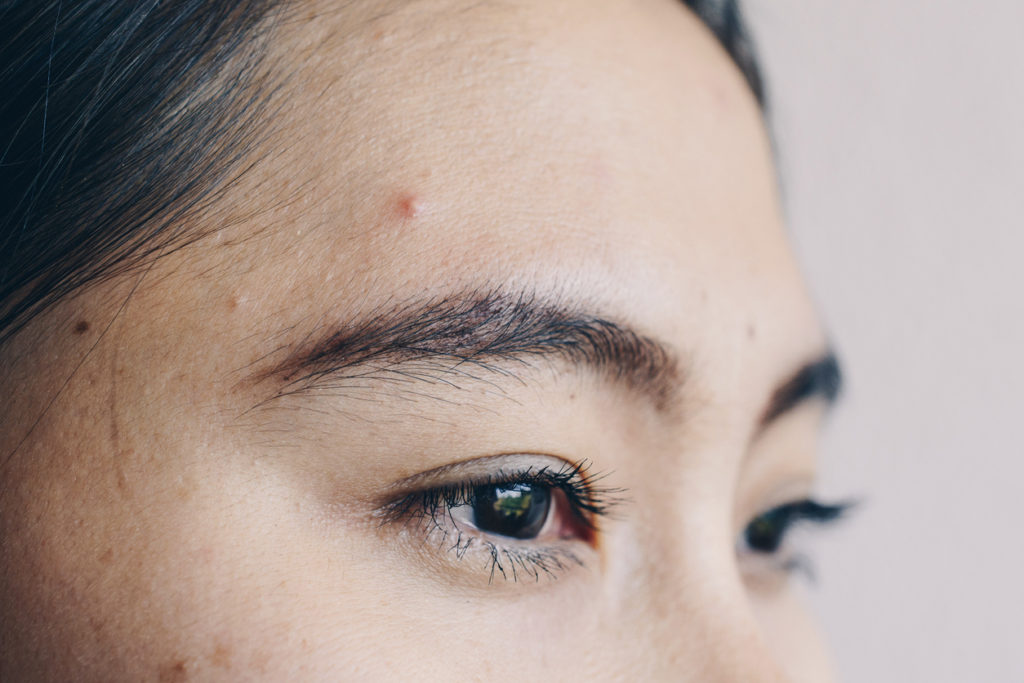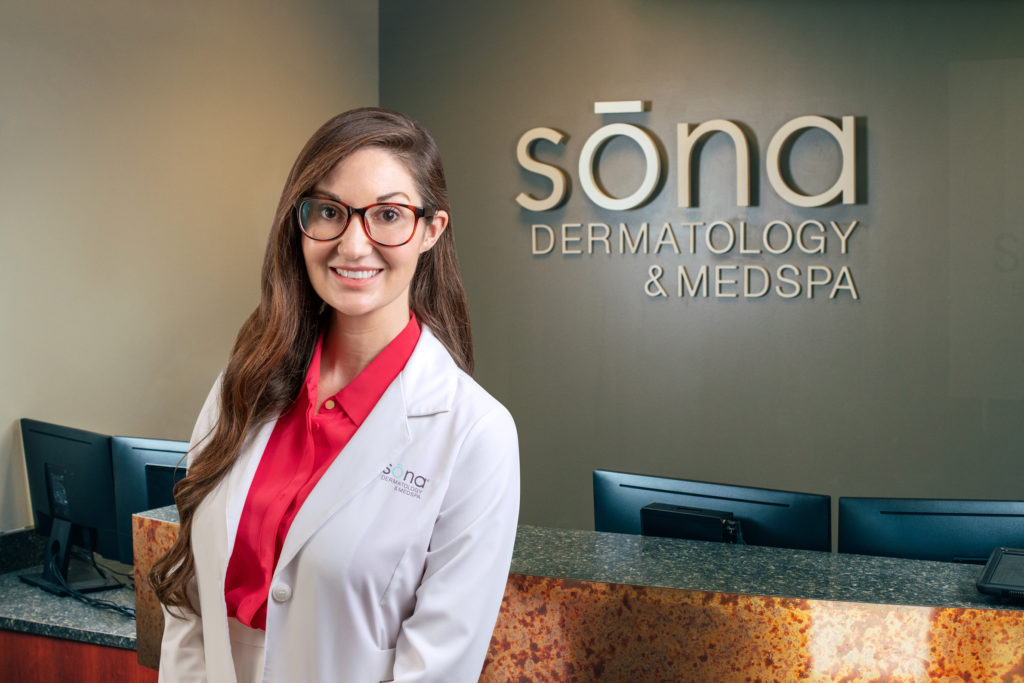Helping Your Teen to Clear Skin
As a mother to an eight- and a ten-year-old boy I realize my days with pre-teens are numbered. For many reasons, I try to really be aware, present and to take in every fleeting moment I have with my boys. I am all too aware that they are growing up quickly and that our teen years are sneaking up faster than I am prepared to deal with. Among all the issues that come along with teens, skincare is one that I want to stay on top of so that my boys won’t struggle with acne.

This is where Dr. Heather Reagin of Fort Worth’s Sona Dermatology & MedSpa can come in to ease the transition for your kids into their teenage years. During puberty, hormones run rampant and wreak havoc on the skin. These hormones stimulate the sebaceous glands to make oil, which can combine with skin cells to form plugs – clogging the pores and creating blackheads and whiteheads. When bacteria enters the picture, more inflammation occurs, leading to pustules and cysts.
Acne can have psychosocial impacts that are particularly problematic for teens. According to the American Academy of Dermatology (AAD), teen acne can result in low self-esteem and self-confidence, poor body image, social withdrawal, and even depression. Although acne is very common among teens, parents should take the condition seriously and should treat early. Acne, particularly when mild, is easily treatable and delay in treatment can result in permanent scars.
Dr. Reagin at Sona Dermatology and Med Spa in Fort Worth has a few tips for dealing with acne in your teen.
Avoid picking:
It is important for teens to understand the detrimental effects of picking at their acne. Picking at the lesions can lead to more severe swelling and redness and increases the risk of permanent scarring. For some, it can feel almost impossible not to pick at the lesions, but some just do it out of habit. In these cases, she recommends acne skin patches – transparent, discreet spot patches applied to the blemish, serving as a reminder to not pick at the lesion. In addition, some patches are medicated, which can help decrease the inflammation. Patches can be worn overnight to decrease the appearance of the redness and swelling. You can find them on Amazon or through major retailers such as Target.

Consistency is key:
It is important to be aware that successful acne treatment requires consistency. However, life gets busy trying to balance dinner, homework, extracurricular activities and, let us not forget, the social life of a teen. Sticking with a skincare routine can easily fall by the wayside as it is unlikely to be at the top of their priority list. Work with your teen to come up with ideas to help them stick with their skincare regimen. Dr. Reagin suggests having them set a reminder on their phone that repeats daily to remind them to apply their medication. This not only takes the burden off parents to remind their child, it also allows the teen to develop independence and take on more responsibility for their healthcare. Visual cues can also serve as a helpful reminder. For people who have trouble remembering their medication, Dr. Reagin recommends leaving it on their nightstand as a reminder to apply before getting into bed. Getting a professional involved also helps relieve you of this duty as your child may listen to recommendations by a doctor more readily than your advice; even if you say the same thing.
Patience is a virtue:
Teens are hard-wired with a natural affinity for immediate gratification, but unfortunately treating acne successfully can take several months to see full results. Many medications work by changing how the skin functions, which takes time. Comedonal acne (blackheads and whiteheads) take the longest to see improvement. Generally, a good rule of thumb is to expect a 50% improvement after 3 months of consistent use of medication. Keep this in mind particularly if your child has senior pictures or prom coming up and they want their skin in tip-top shape. Dr. Reagin recommends allowing 6-12 months before an event for best results. She also says she sets expectations at the initial visit so patients understand that it takes times to see results, rather than assuming the medication is not working. She has found that patients are more likely to stick to the regimen when she outlines a realistic timeline.
What do I do now?
If your teen has mild acne you would first like to treat at home, she recommends the following:
- Differin gel, an over-the-counter mild retinoid, works best for comedonal acne by helping to unclog pores. For best results, apply a pea-sized amount to the entire face at bedtime – do not spot treat pimples.
- For inflammatory acne that includes pus bumps and painful red swollen lesions, look for products that contain benzoyl peroxide. Do wash your hands after applying because benzoyl peroxide can bleach fabrics.
- Both of the above products can be irritating, particularly for sensitive skin, so pairing with a good moisturizer can improve the tolerability. You should also start slowly, using a couple of times a week, before increasing to daily use.
- Other ingredients to look for in skincare products include niacinamide and zinc, both of which have anti-inflammatory properties shown to be effective in improving mild acne.
- If your child already has scarring or has persistent acne despite a good over-the-counter regimen, it is probably time to see a board-certified dermatologist. There are a broad range of treatments to choose from and with a little bit of patience your child can gain back their confidence in their skin. It is very rewarding to watch their confidence and self-esteem rise as their skin clears.

We can’t avoid all of the problems and angst that come along with being a teenager, but one thing you can get under control and help your teen with is a clear complexion. By using these tips and having your teen under the care of a dermatologist, you can at the very least help them maintain beautiful skin and avoid permanent scarring, which can be life changing for many teens. Sona Dermatology and MedSpa is located at 2421 W. 7th Street in Fort Worth. To schedule an appointment with Dr. Reagin, call (817) 439-7662, or visit their website at https://sonaskin.com/locations/tx/dallas-fort-worth/
 Angela Weaver is a native Texan, raised in Keller, but she got to Fort Worth as soon as she could. At 17, she joined the Marine Corps and served four years active duty. After her military service ended, she went to work for a hedge fund and then a whiskey distillery, both in Fort Worth. Her most important role started in 2009 when she became a mom. She lives with her husband and two boys in Fort Worth and spends as much time as possible on fun adventures with her kids. She loves to spend her time with her boys outdoors getting the full Boy Mom experience, even if that means being covered in dirt, catching fish, or shooting BB guns. She loves the sense of community she has found in Fort Worth and can’t wait share that with our readers.
Angela Weaver is a native Texan, raised in Keller, but she got to Fort Worth as soon as she could. At 17, she joined the Marine Corps and served four years active duty. After her military service ended, she went to work for a hedge fund and then a whiskey distillery, both in Fort Worth. Her most important role started in 2009 when she became a mom. She lives with her husband and two boys in Fort Worth and spends as much time as possible on fun adventures with her kids. She loves to spend her time with her boys outdoors getting the full Boy Mom experience, even if that means being covered in dirt, catching fish, or shooting BB guns. She loves the sense of community she has found in Fort Worth and can’t wait share that with our readers.


 Sign in
Sign in

